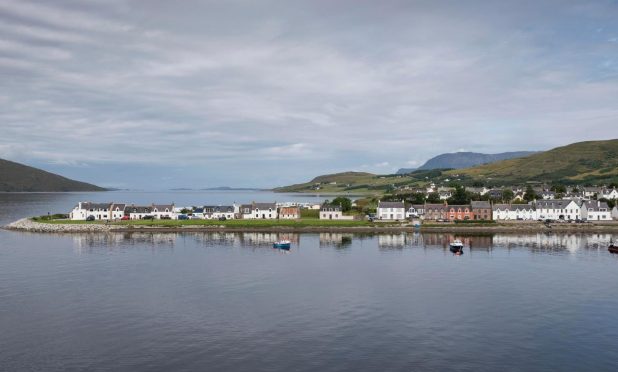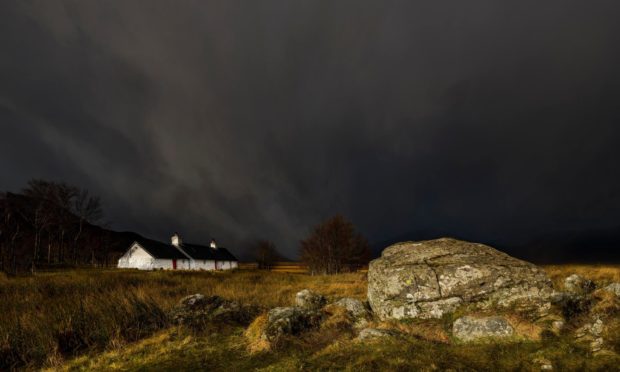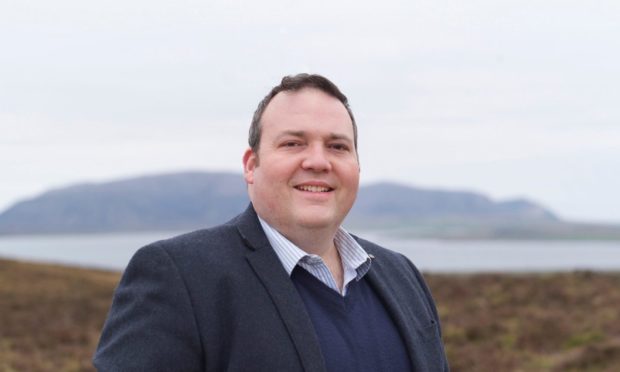Population decline in rural Scotland could be tackled with plans to widen fertility treatment, offer “support packages” to attract new families and breathe new life into communities with remote working.
A wide-ranging set of proposals was unveiled at the Convention of the Highlands and Islands in an attempt to address long-term problems – and the shock of coronavirus and Brexit.
Official figures show Scotland’s working-age population is under pressure, particularly in the Western Isles and remote rural areas. Projected population increases are also below the Scottish average in cities such as Dundee and Aberdeen.
The Scottish Government set out 36 recommendations looking at family life, migration, health and local employment. They include:
- Research on the impact of offering IVF treatment to single people and families who already have children.
- Offering support packages to new families from elsewhere in the UK, such as jobs for partners and help with housing.
- Pushing the UK Government to allow regional overseas migration schemes
- Harnessing changes to remote working by transforming disused buildings in town centres.
Scottish Government economy secretary Fiona Hyslop said: “There is no single magic bullet available to address our demographic challenges.
“Instead this report proposes a series of innovative steps to build a sustainable population by attracting people into Scotland, distributing our population more evenly around the country and helping everyone live long, productive lives.
“But we can only do so much with the powers we have, and the UK Government must also play its part by using its reserved powers, particularly on migration, to address Scotland’s unique issues.”
‘Support packages’ for new families
Migration has been a long-term battle between the SNP and Tory governments in Edinburgh and London and is an issue that shows no sign of being agreed under Prime Minister Boris Johnson.
Looking at immediate proposals, the report suggests “support packages” for families in the UK but does not give details.
“We commit to undertake work to explore how we and partners can offer a support package to those who wish to move and work in Scotland, including support around housing, spousal recruitment and family support where needed as part of our talent attraction and retention work as well as explore the potential to extend these options to overseas in the future,” the report states.
However, the report points out any support plan must not forget keeping a local population in place too.
A lack of affordable child care is seen as a “key challenge” in rural and island areas, despite years of promises to improve provision. Families need wrap-around, localised care, the report states.
‘Gender blind’ parental leave benefits
The Scottish Government also wants to review employment law, which needs UK approval, to create a “gender blind” parental leave system.
The report highlights Sweden’s offer of 480 days of parental leave at 80% of salary as encouraging families to want to have children.
This can also help our town and city centres improve economically with increased footfall once again.”
On potential changes to IVF, the report says more work is needed. It states: “Increasing access to NHS treatment for the purposes of increasing population could be achieved by widening access criteria to NHS fertility treatment – for example, to include single people, or couples who already have a child – or by increasing the number of cycles of IVF to increase success rates.
“Further modelling would need to be undertaken to inform the demand and possible outcome of these changes and insight work to be carried out to understand if that is one of the reasons behind people not having children.”
Covid has already forced people across the country to work from home and made some consider staying further from cities.
The report raises the prospect of “community work hubs”, adding: “This would not only provide workspaces for those people who are struggling with remote working in small properties but also still provide the social aspect of office working.
“This can also help our town and city centres improve economically with increased footfall once again.”
‘Not acceptable in this day and age’
Molly Nolan, the Lib Dem land reform spokeswoman and candidate for Caithness, Sutherland and Ross, said: “Scotland faces a number of demographic challenges, particularly in the Highlands.
“Poor access to the critical infrastructure that people and businesses need to thrive like fast broadband and accessible housing makes life harder for those who want to stay.
“The pandemic made it abundantly clear that a fast and accessible internet connection is crucial for those living in the Highlands. It can no longer be seen as something that’s just nice to have.
“The SNP’s failed promises on rural broadband and housebuilding have forced many young highlanders to leave our homes, our birthplaces, the land we love just because it is impossible for many to do what is normal in the central areas. This is not acceptable in this day and age.”
‘Very late in the day’
Highlands and Islands Scottish Conservative MSP Jamie Halcro Johnston said: “This is very late in the day for the SNP to start pretending they’re bothered about people living in the Highlands and Islands.
“If they did care, they’d have fixed the ferries fiasco on their watch, sorted the A9 dualling and the deteriorating condition of the A82 and the A83, and reversed years of chronic underfunding.
“The fact is, the SNP knew all about the demographic problems we face years ago.”



